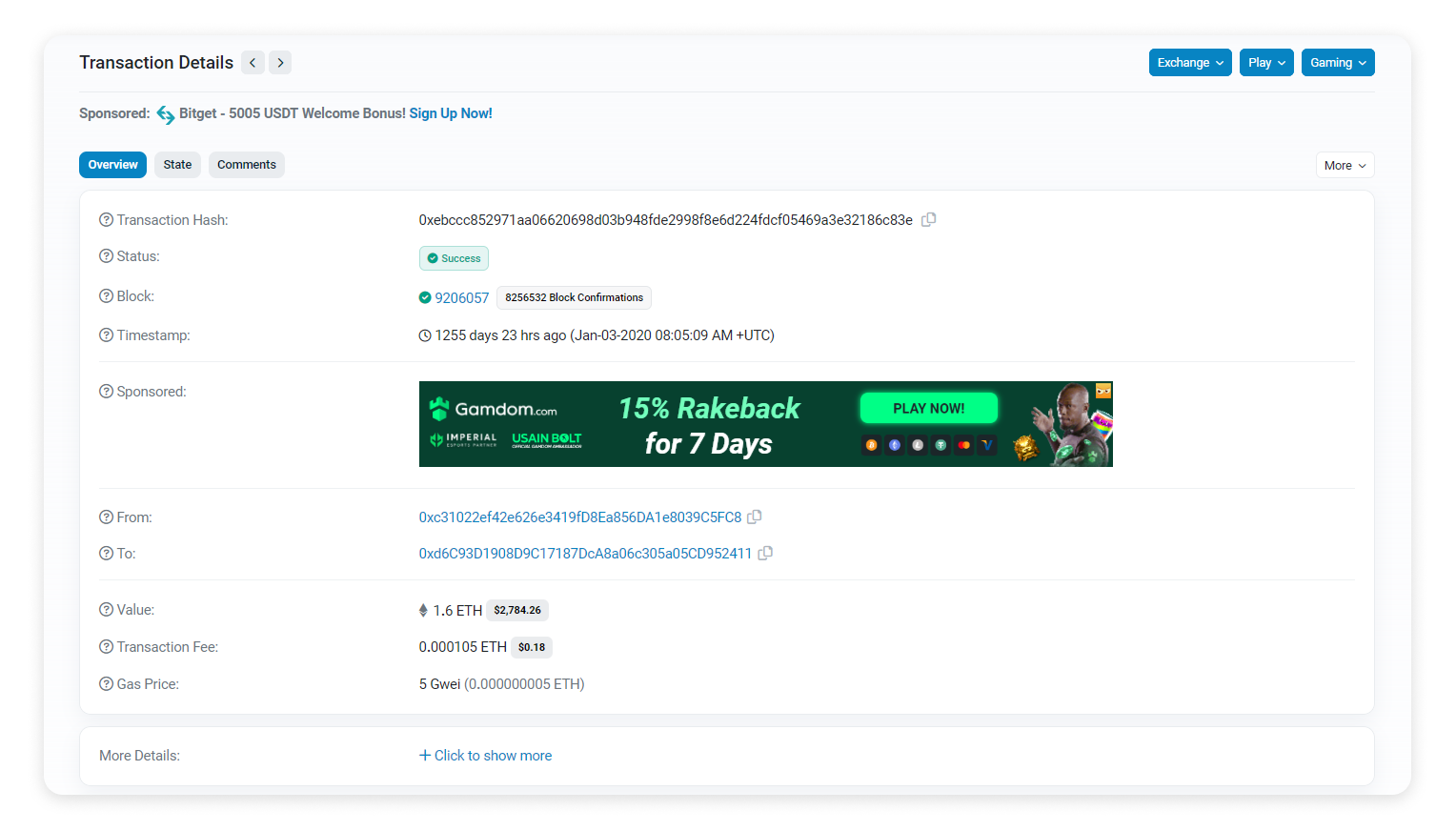This article is originally published for Etherscan but applies to BscScan, PolygonScan, HooScan, HecoInfo, and FTMScan as well.
Etherscan is a block explorer for the Ethereum network and what we do is gather as many details and information we can from the Ethereum blockchain and relay them to the Ethereum users in simple and understandable formats. The details and information that we relay include, but are not exhaustive to, transaction status, address' balance, transaction fee, latest block number, pending transaction pool, etc.
It is fair to say, as an example, that in the Ethereum blockchain we are like a minute taker that records every single thing discussed or that happened in a meeting. Except here in the blockchain, we record and simultaneously broadcast everything that happened in it. Moreover, similar to the minute taker, we only record the incidents and events on the blockchain and we are not, in any way, authorized, capable, or tasked with handling or controlling any component of the blockchain. The Ethereum blockchain is a self-sustaining network and it is a responsibility that we put on ourselves to contribute to its sustenance a platform that lets people understand and be a part of the technology without having to know the technical stuff.
So why are you sent to our site?
It has become a common practice whenever a transaction is carried out, senders will share to their receivers a link to a page that shows every detail pertaining to the transaction. Some of the details often shown are:
- Transaction Hash
- Block Number
- Sender’s Address
- Recipient’s Address
- Nonce Number
- Transaction Status
This practice is to let the receivers know that the transaction has been carried out and they can check to see that it is carried out accordingly.
You could have been redirected to a page similar to this:

This page (called the Transaction Details page shows all the essential information of a transaction and is normally used as a receipt or a proof of payment.
As an explorer for the Ethereum blockchain, we only collect and broadcast information that we managed to gather pertaining to the transaction from the Ethereum blockchain for the users. We are not an equivalent to a bank that manages, transfers, or stores funds for users. All the funds in a transaction are sent directly from the sender’s address to the receiver’s address without any meddling or interference by a third party or any centralized authority.
To access the funds received from the transaction, you would need to access the receiving address via a wallet, as you would normally do to check your balance or perform a transaction. Kindly take note that we do not affect or control the transaction in any way.